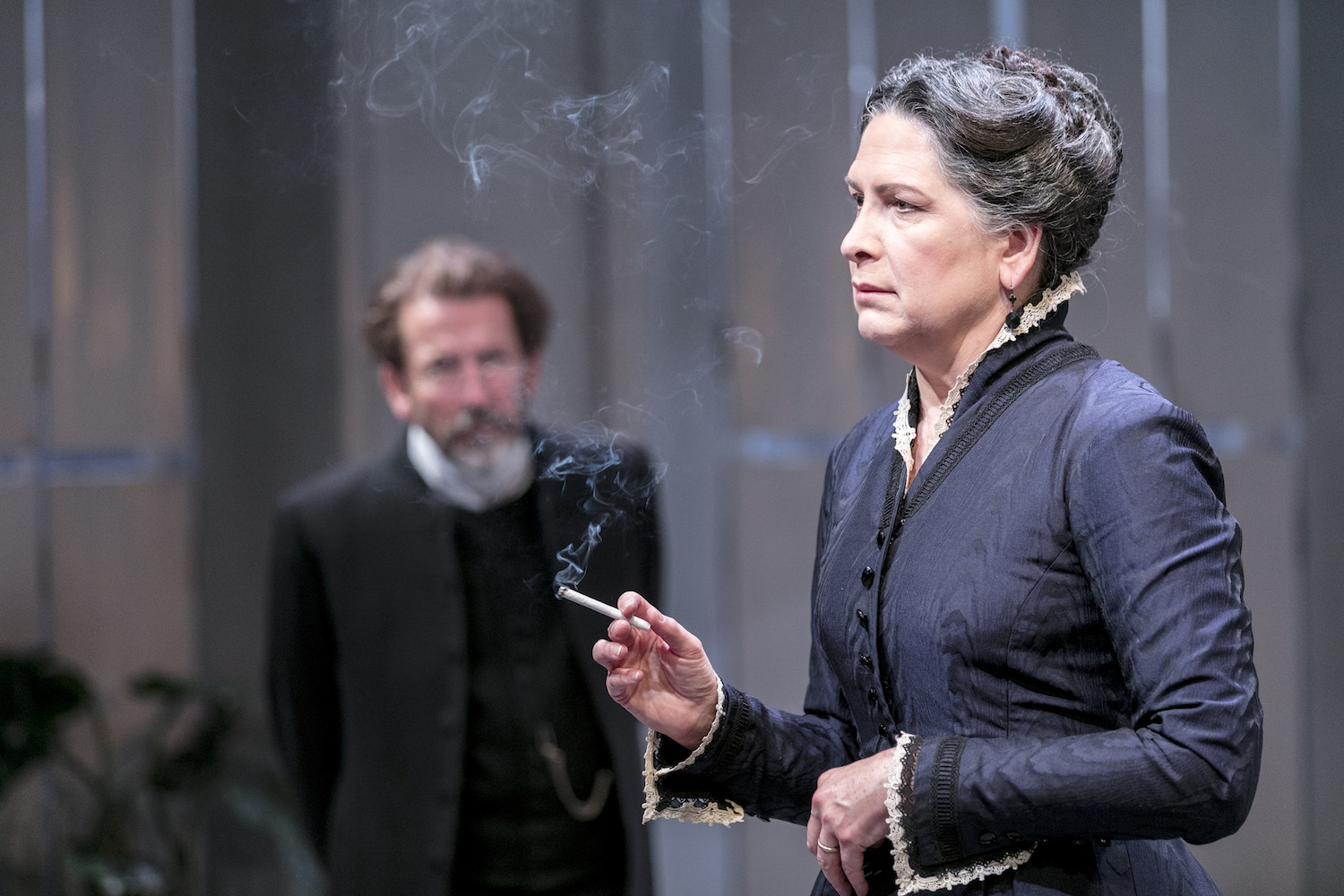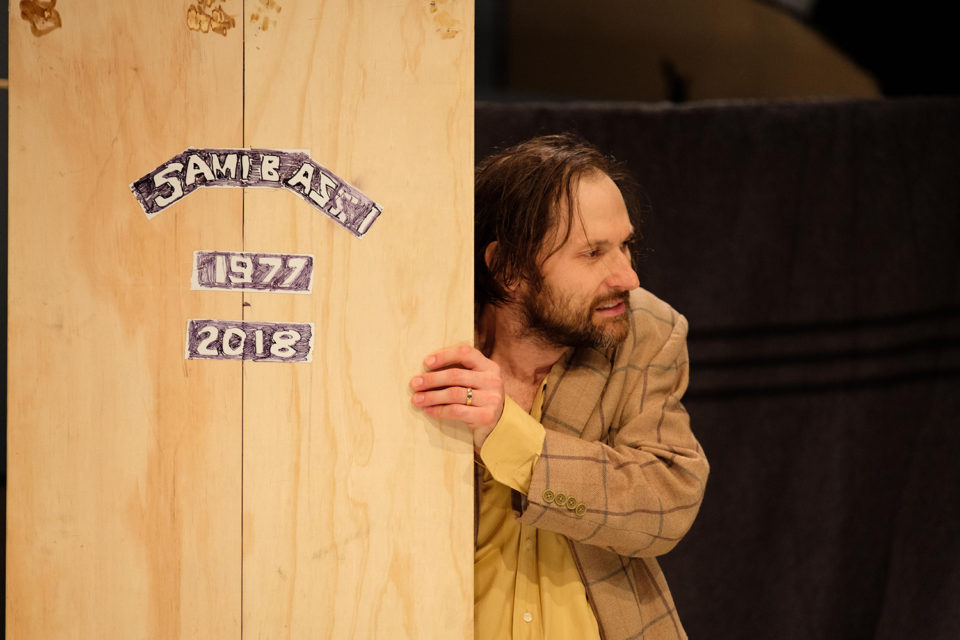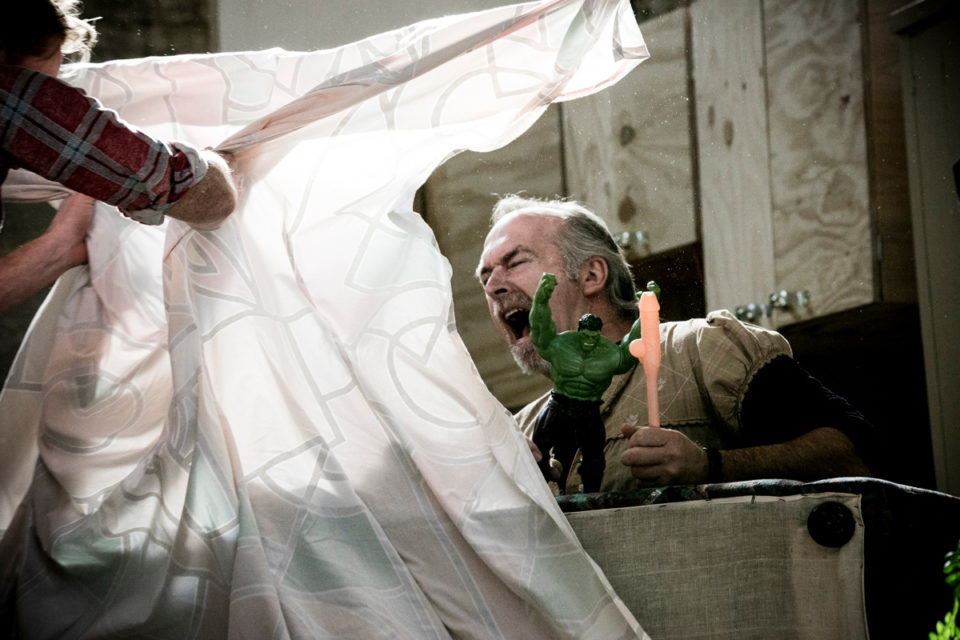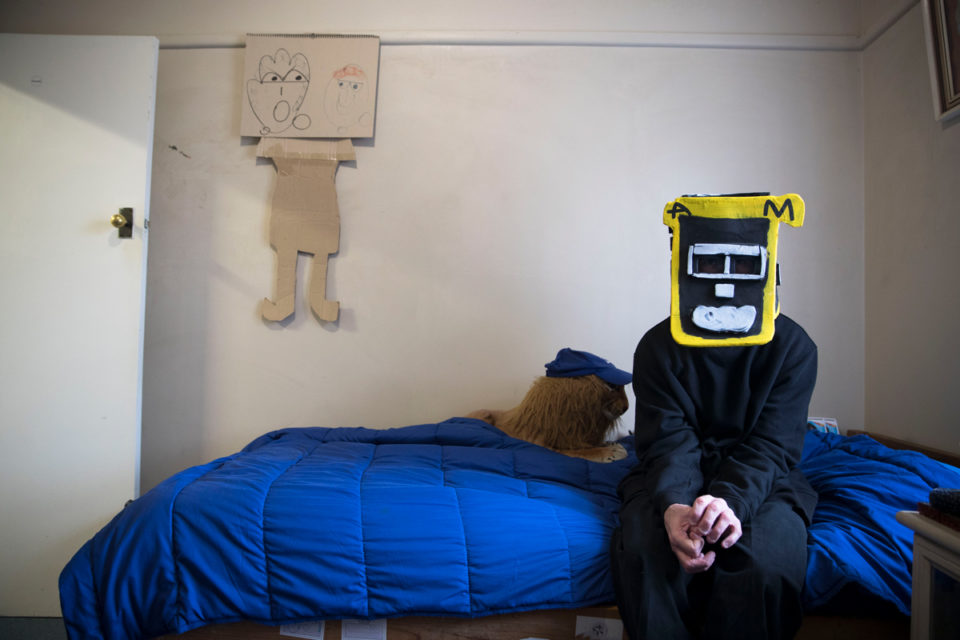“It is the very mark of the spirit of rebellion to crave for happiness in this life.” – Henrik Ibsen
What do we do when our ideals fail us? When they lead us to deny what makes us human? Deny us love? Ghosts was written in 1881, a time which saw works challenging the place of idealism in our lives: Friedrich Nietzsche’s Genealogy of Morals, William James’s Pragmatism, Henry Sidgwick’s Methods of Ethics.
Sidgwick doubts there is “something under any given circumstance which it is right or reasonable to do, and that this may be known”. Norwegian playwright Henrik Ibsen’s Ghosts is about this and more: marriage, family, faith, incest, love, STIs, ageing, youth, euthanasia… It’s life.
Helene Alving (Pamela Rabe) is building an orphanage in homage to her late, abusive husband. She’s helped by the idealistic Pastor Manders (Robert Menzies). Mrs. Alving and the Pastor share secrets of the past, and denials of passion boil beneath coy courtesies.
Her liberal son Osvald (Tom Conroy) has returned from life in Paris as a bohemian painter. He knows nothing of his father’s abuse, whose ‘ghost’ haunts and infects him. (As his mother Mrs Alving observes: “I almost believe we’re all ghosts. Every one of us…It all returns. Not just what we inherit from our parents. Everything. Dead ideas. Dead beliefs. Dead customs. Lodged in us… As many ghosts as grains of sand. And we think we know who we are. We have no idea.”)
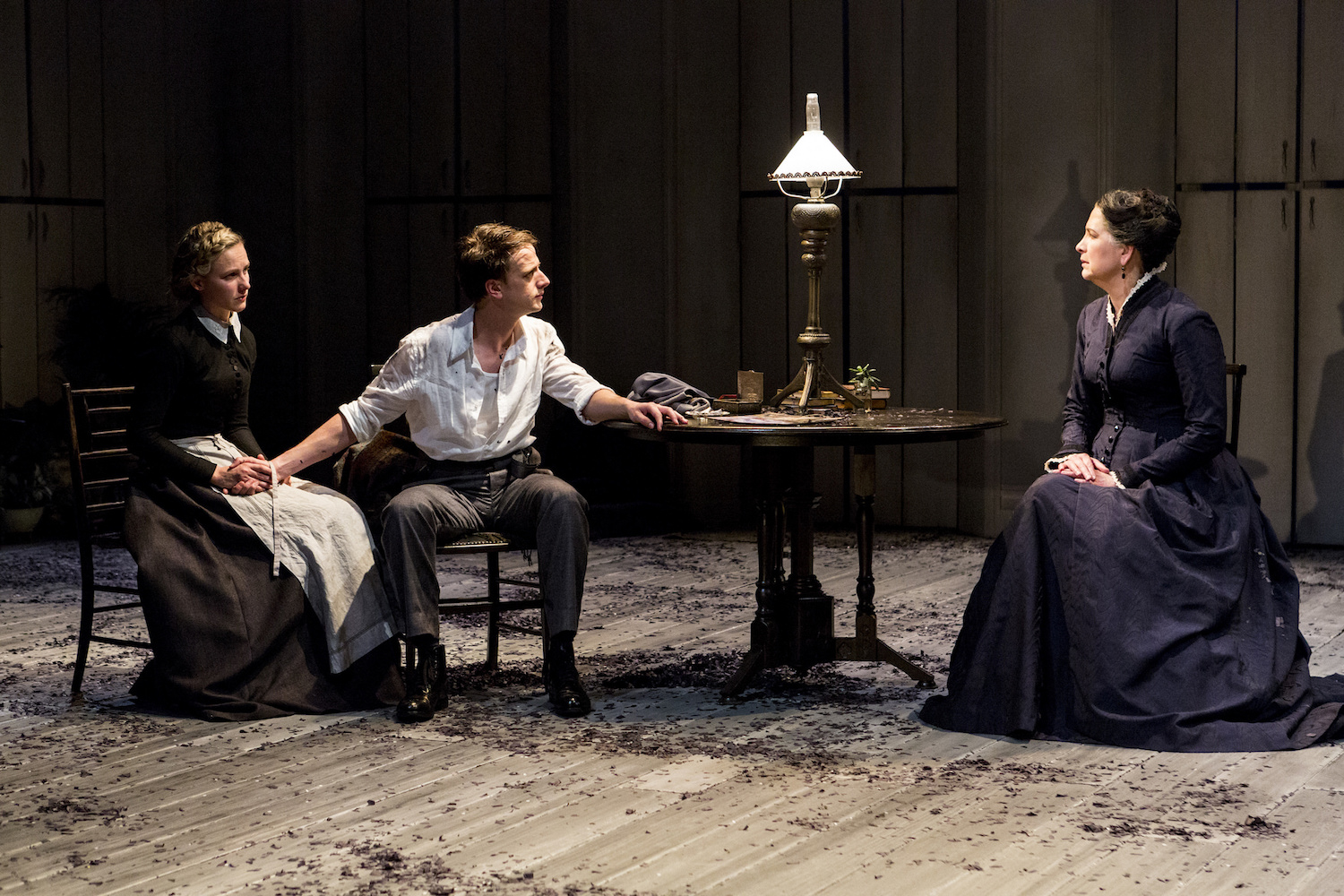
Photography by Brett Boardman
Mrs Alving’s maid Regine (Taylor Ferguson) – who has been eagerly waiting for the return of her love crush Osvald – tends to the house blissfully unaware of the family’s secrets, and of her own father Engstrand’s deception (Colin Moody) and how all this will change her life.
Ignorance, ghosts and secrets haunt this provincial house with a vengeance.
For ourselves, we sit and first see Michael Hankin’s purgatorial set. Mrs. Alving’s garden-room with whitewashed walls empty but for table, chairs and plants. There’s nothing that belonged to her late husband but perhaps for a crucifix hanging stage-left – the deafening silence of Him. And a small landscape painting stage-right – “the joy of life” to which Osvald later alludes.
A problem is posed by the stage-left exit: the walls stop and the theatre black takes over but action occurs in this space, out of view. The set finishes before the actors leave the stage – what to make of this?
Director/adaptor Eamon Flack’s script is immediate, with the urban Australian cadences lively. His direction unseen but for a moment in which we’re implicated in the play: the stage is left empty, calling us to attention and to ourselves as we overhear Osvald: “[There is] just us. No one else.”
And just wait for the disquieting final moments. Why does Mrs. Alving not touch her son? Can we be driven by reason or are we slaves to passion? This play doesn’t ask the question ‘to be or not to be’ but ‘to do or not to do’.
The poet Rainer Maria Rilke wrote that Ibsen captures everything that is “barely measureable… emotion that rises by half a degree, the angle of deflection… of a will burdened by an almost infinitesimal weight”. Actors show this angle of deflection: performances reveal how our inner and outer lives come apart at the seams. This is rendered acutely in Pamela Rabe’s shining performance as Mrs. Alving. Though if she shines, her light is lit by the embers of the others: Robert Menzies’s Pastor edges upon a stereotype – a psychologically inconsistent opening showing the Pastor as pathetic fool – but then his tenderness shines through the cracks, prompting us to ask ourselves, what can we do with the pathetic within ourselves (from pathos – ‘suffering’)?
Note Colin Moody’s convincing portrayal of Engstrand: how to trust those like him who know how to cower at will? Taylor Ferguson’s Regine – Engstrand’s daughter – is well rendered. She is more innocent than sensual, prompting us to question Osvald’s intentions towards her.
Tom Conroy’s Osvald is incessant in mannerism and histrionic gestures, asking us what kind of mannerism we ourselves employ with our own loved ones – the gestures, tones of voice, that keep us apart, the masks of day-to-day living.
Which means the last performer is us, the audience. Our sense of humour! I was dismayed at the laughs, baffled at the chuffs. The play gauges the community; we are are either not as sympathetic as we would like or enjoy a healthy dose of schadenfreude.
Stefan Gregory’s sound design is of ascending chromatic organ drones evoking the church. But it is at odds with the intimacy of the play – the organ isn’t of intimate timbre. The pure drones neatly represent ‘ideals’; the chromaticism – each small step – leads us to the next tone without ever finding rest, leaving behind only dissonance. It is smarter than it is beautiful: the organ is piercing.
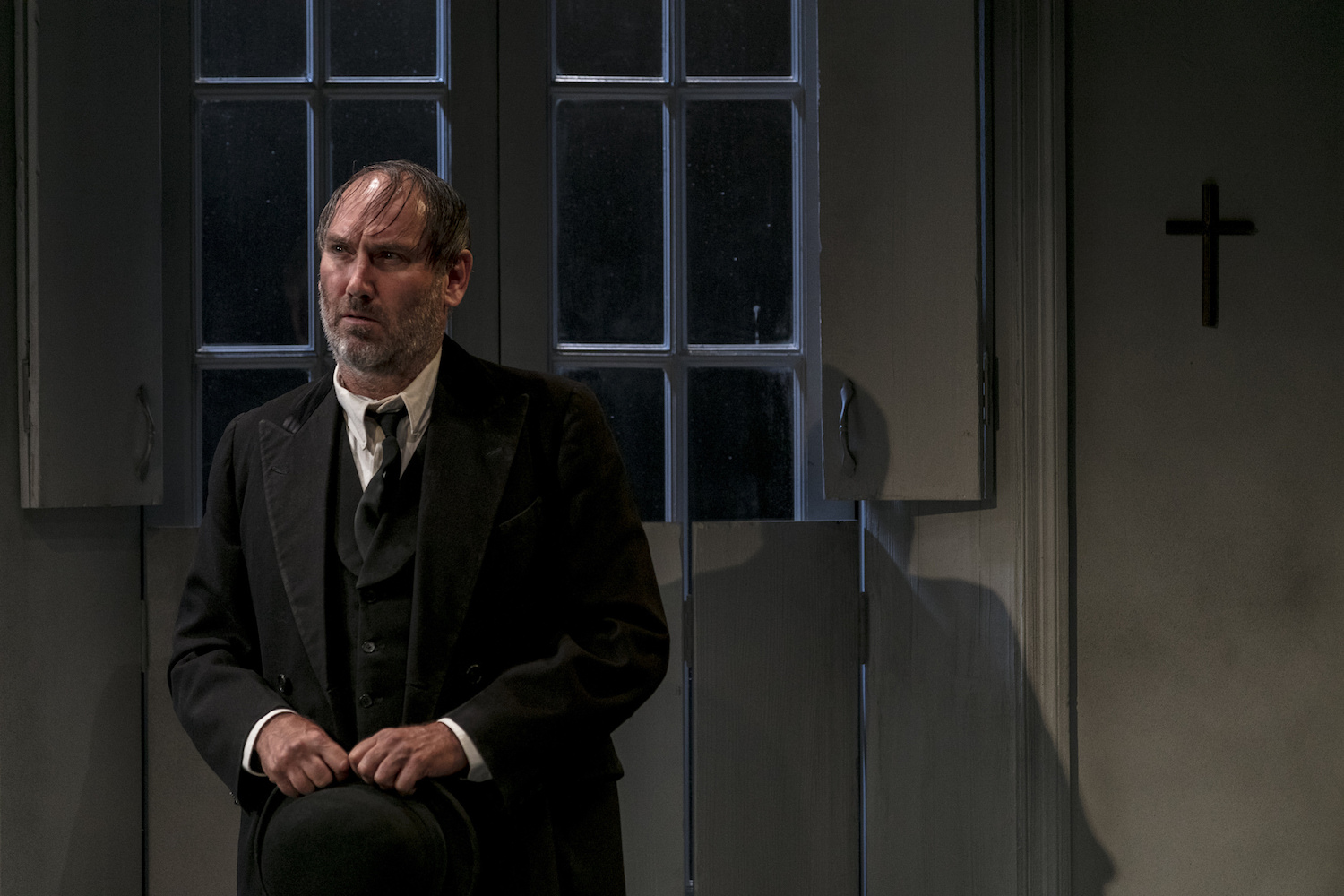
Colin Moody as Engstrand. Photography by Brett Boardman
Julie Lynch’s costumes are elegant: Mrs Alving’s deep-blue and Osvald’s cool-greys match the characters’ dispositions. Michael Hankin’s white walls and floor boards provide canvas for Nick Schlieper’s elegant lighting chiaroscuro.
In 1881 Ghosts was called “a dunghill at Delphi”. But what a dunghill. Ibsen’s work challenges us to live lovingly. With the plebiscite, the play storms into our present: the $122 million would have been better spent on an eternal tour of Ghosts.
The final moments: Mrs. Alving in a tragic double-bind, imploring us into herself. Her predicament is of the same form as ours in which no ideal or principle helps: when we don’t know what to do, lost in the dark, waiting for the sun, with only love. Go to discover her predicament, and share in it.
Post-show I’d recommend Talking Head’s song ‘Once in a Life Time’, Toril Moi’s book Henrik Ibsen and the Birth of Modernism and Anne Carson’s Antigonick (on YouTube).
Henrik Ibsen’s Ghosts runs till 22 October 2017. Duration 1 hour and 45 minutes. Belvoir Street Theatre, 25 Belvoir Street, Surry Hills. Details here: https://belvoir.com.au/productions/ghosts/
Performance date: 10 October 2017


